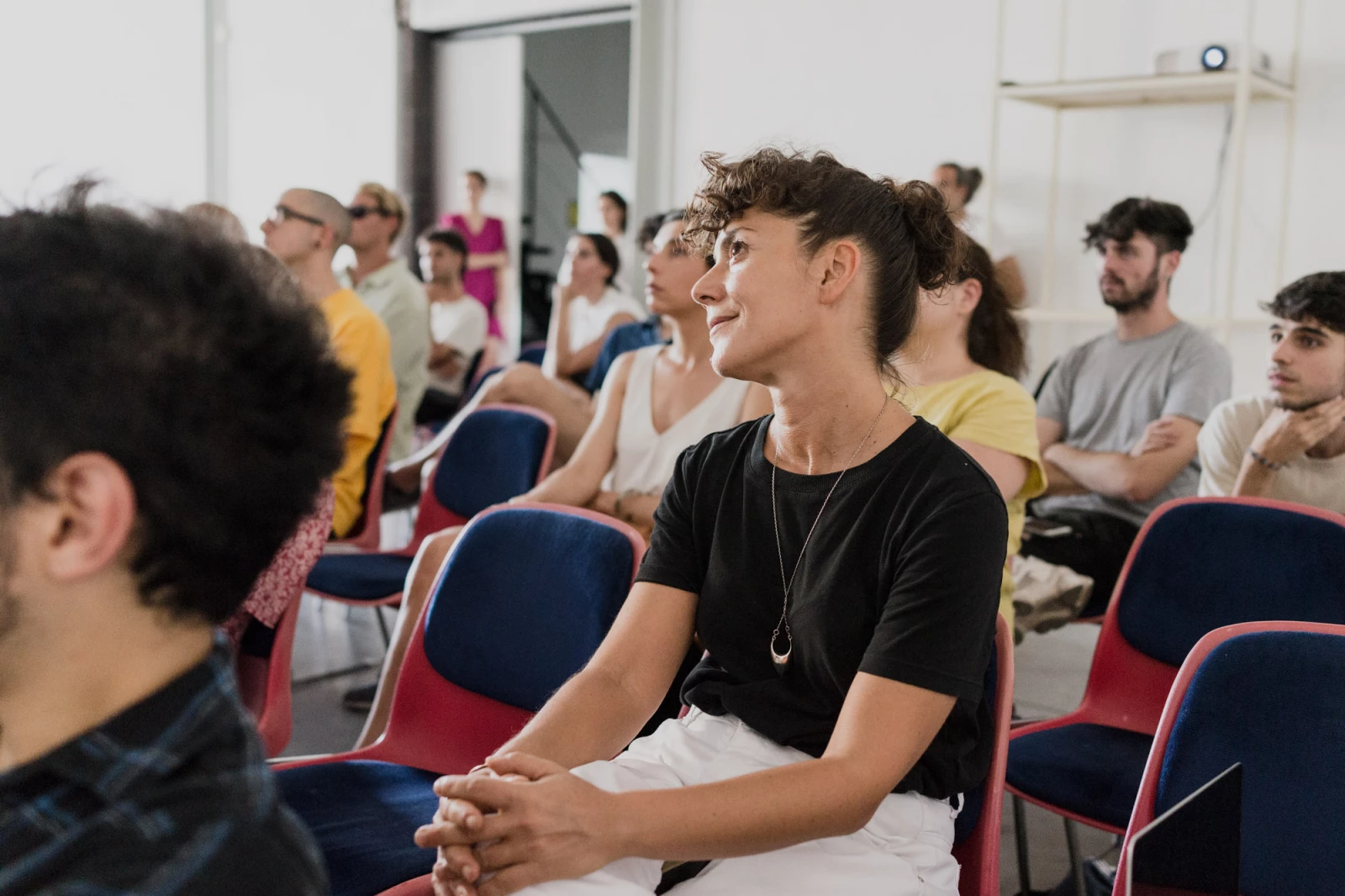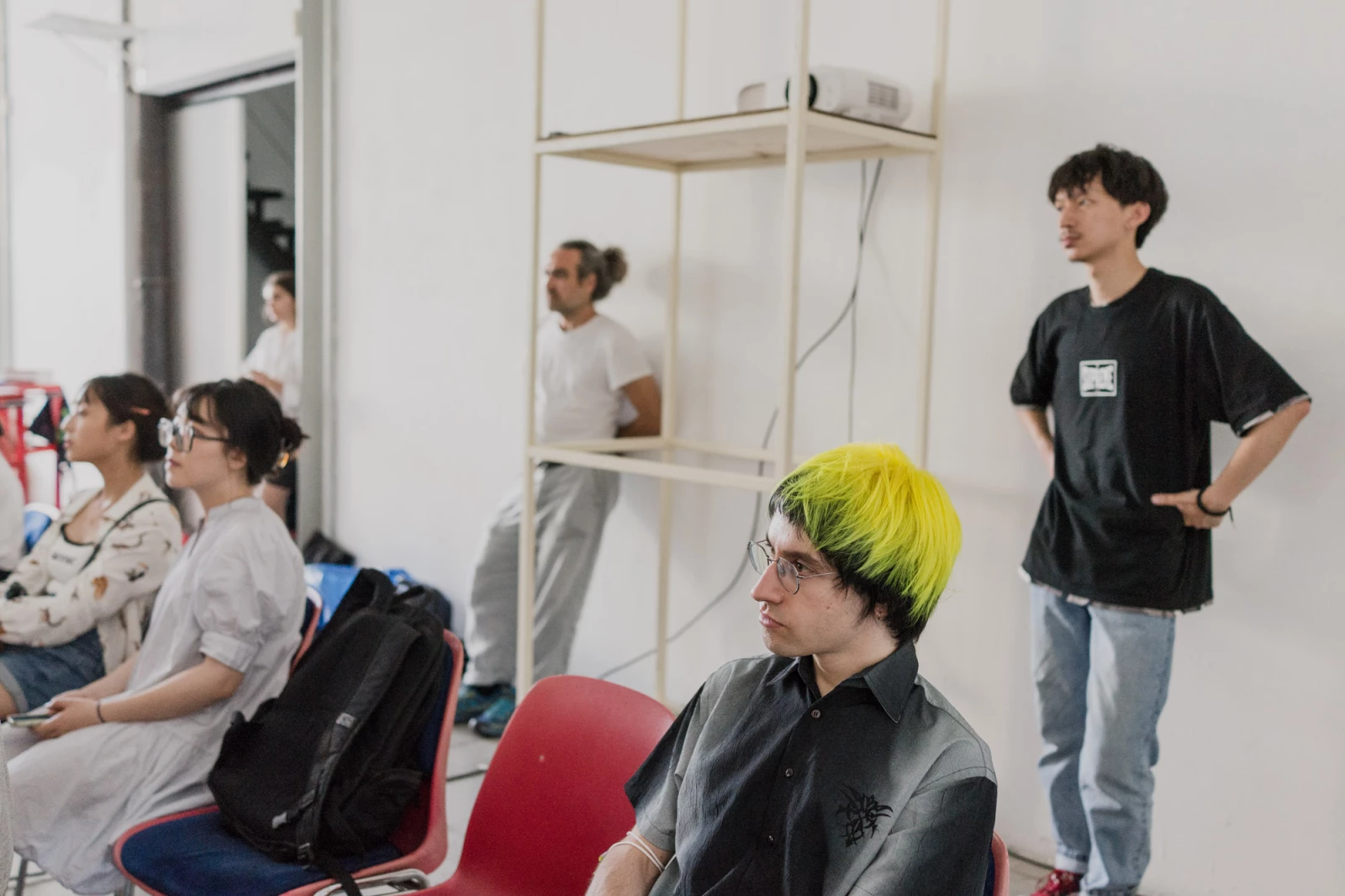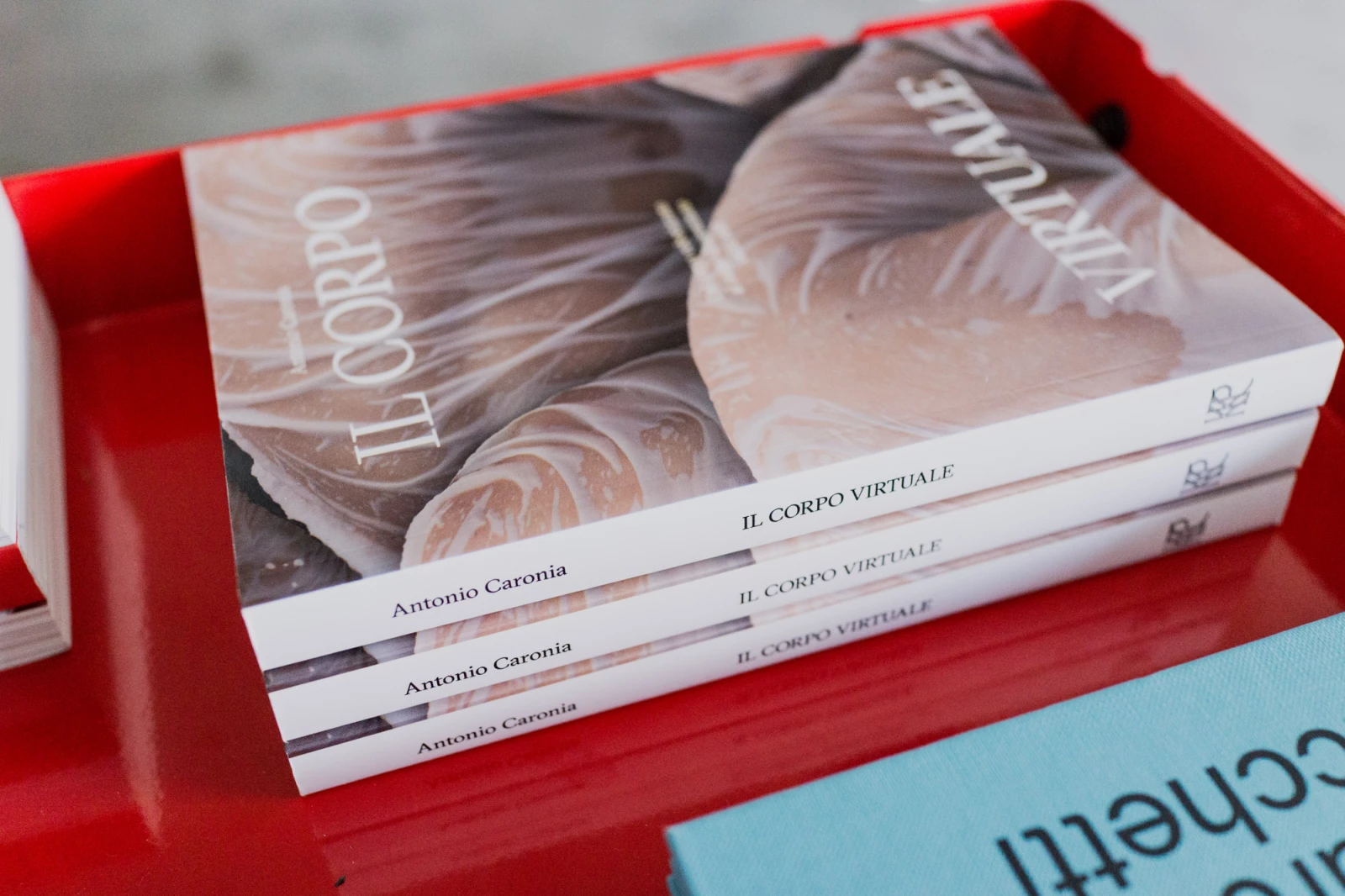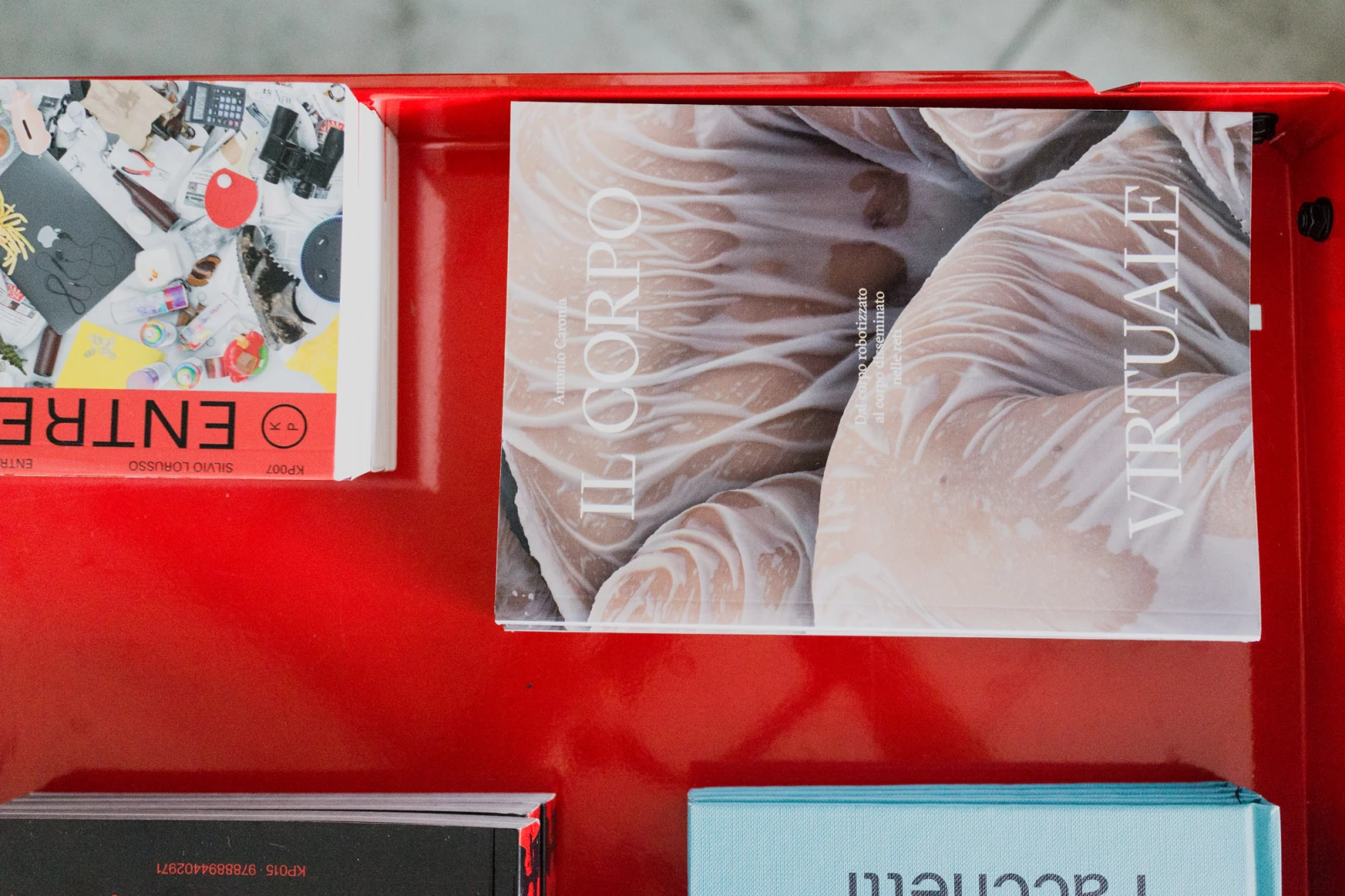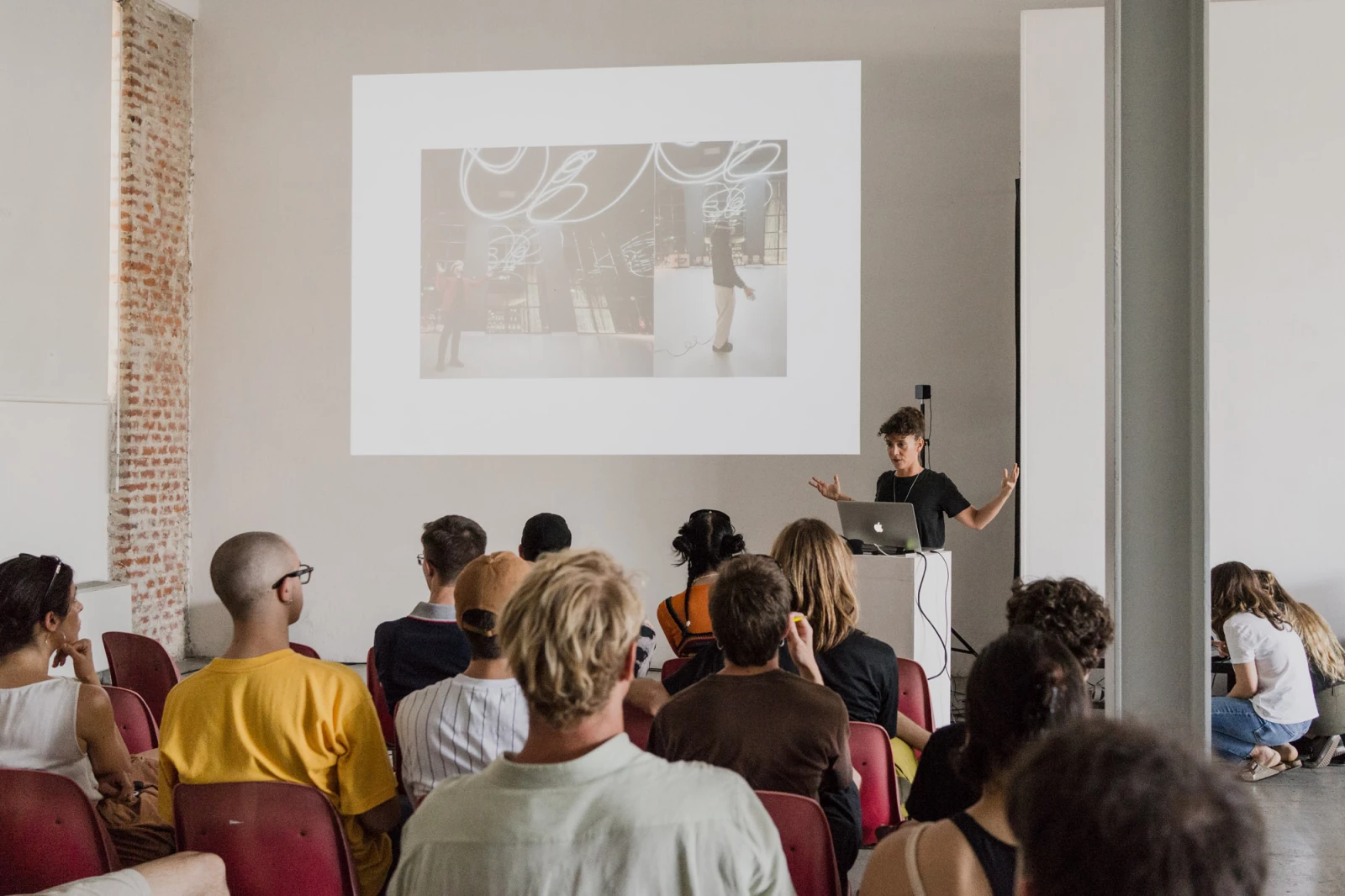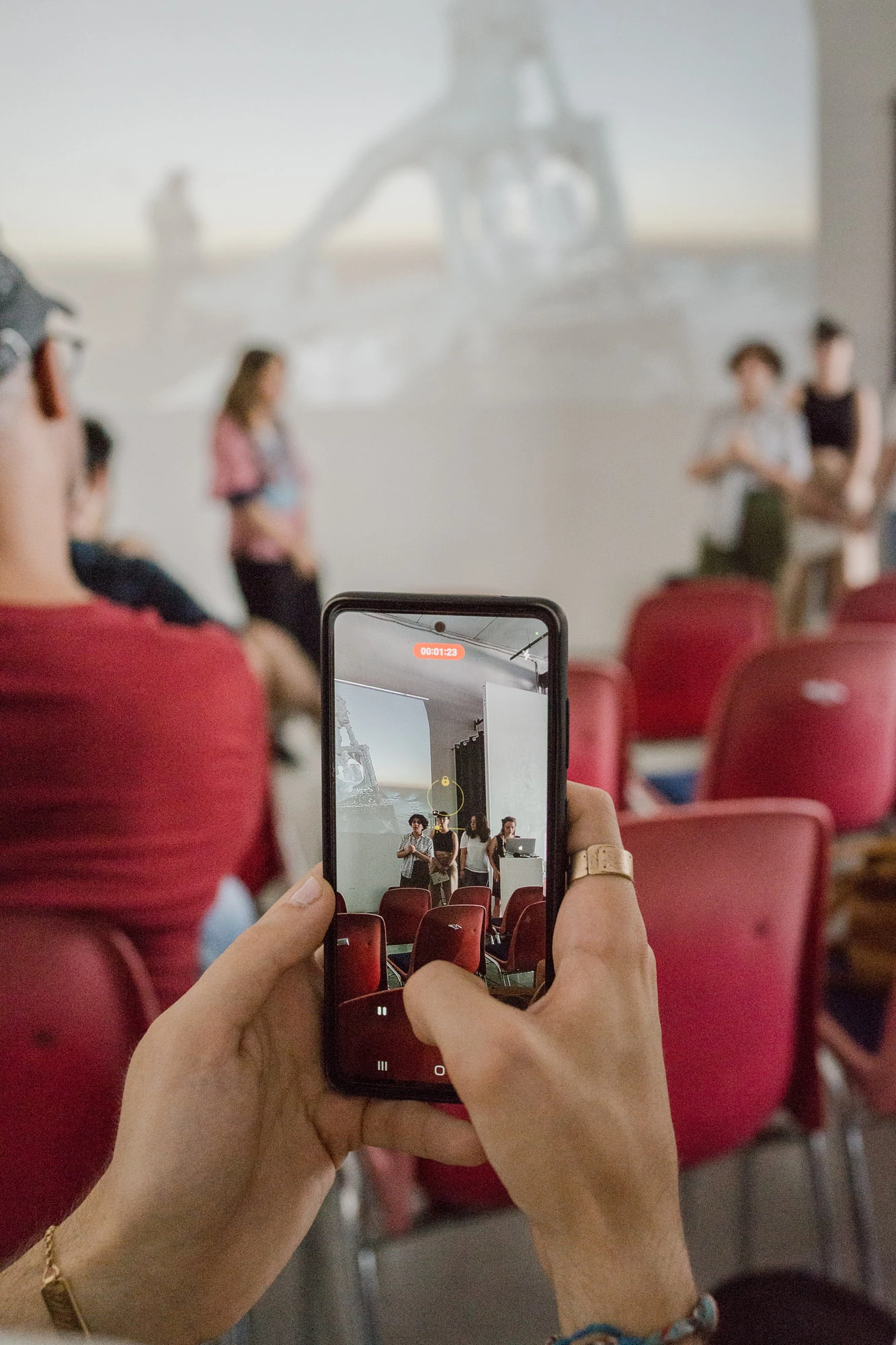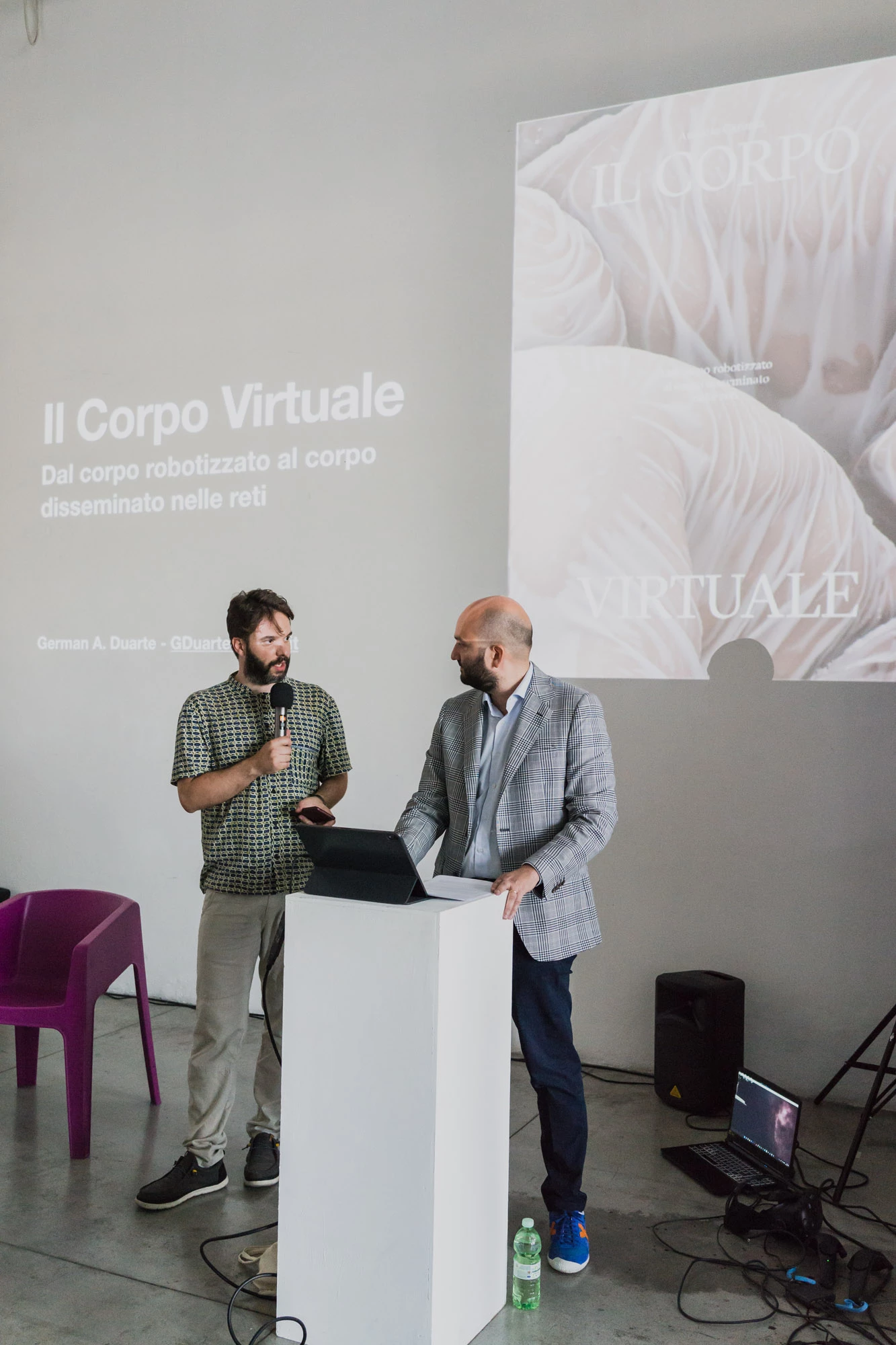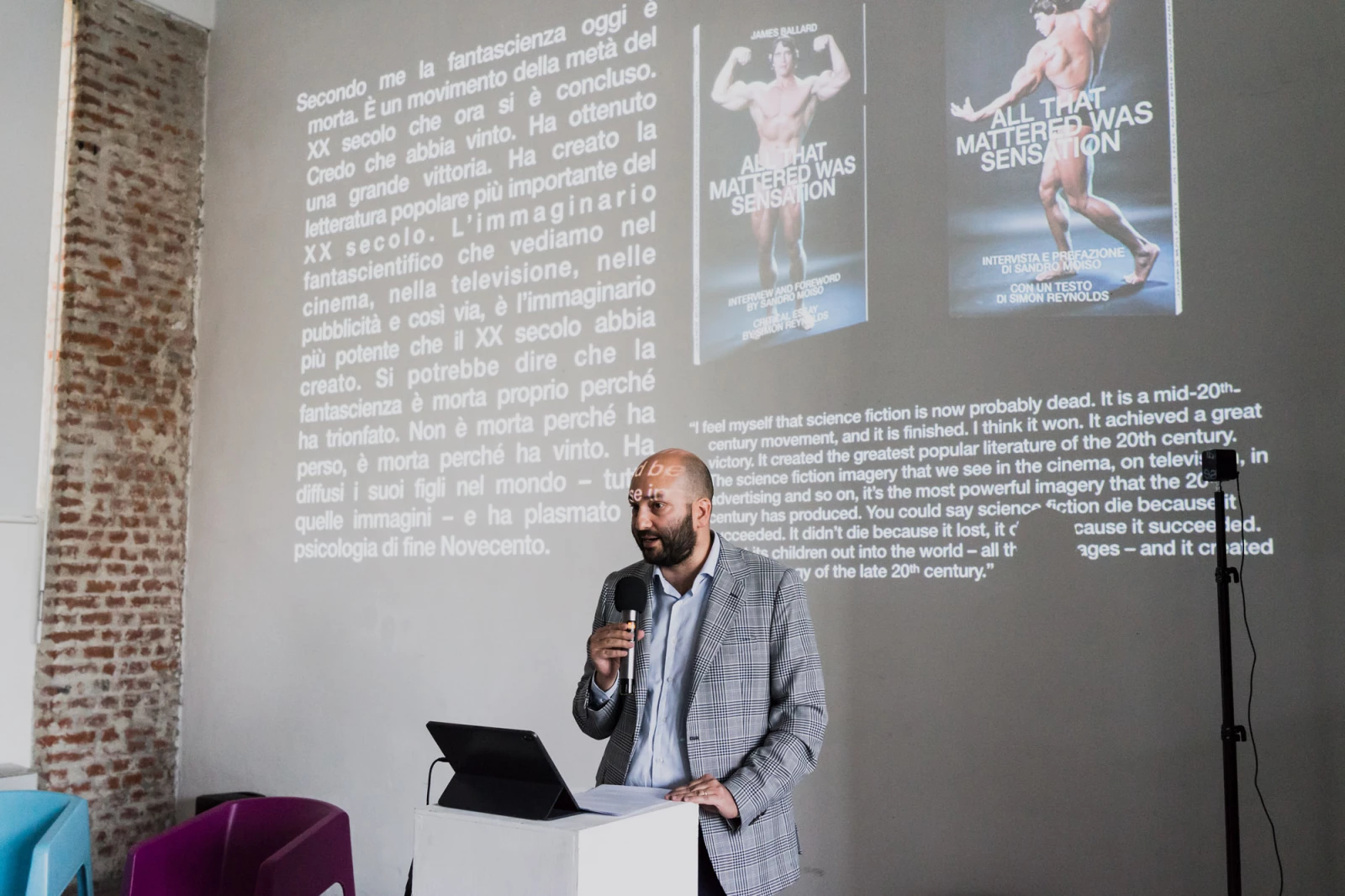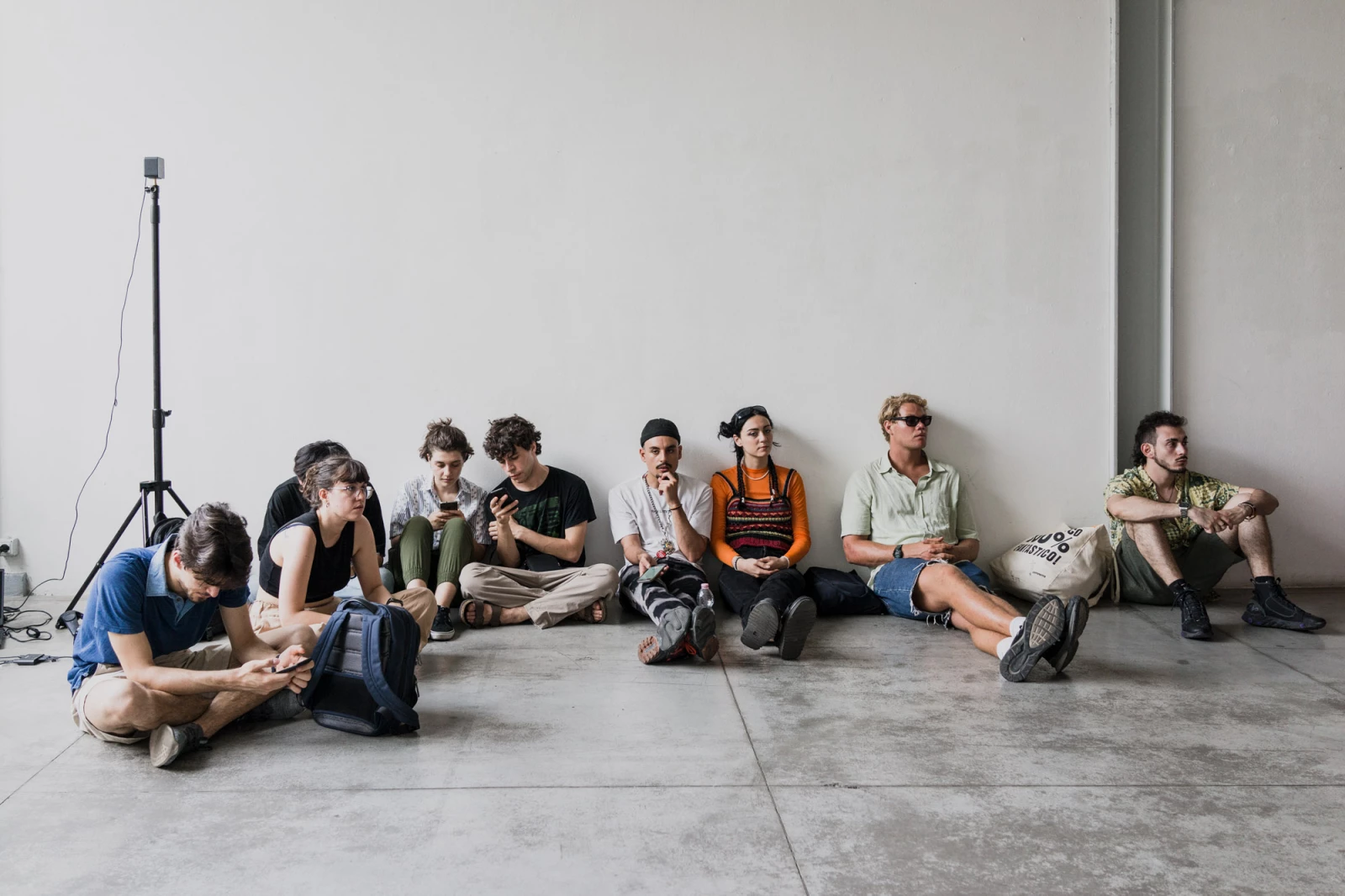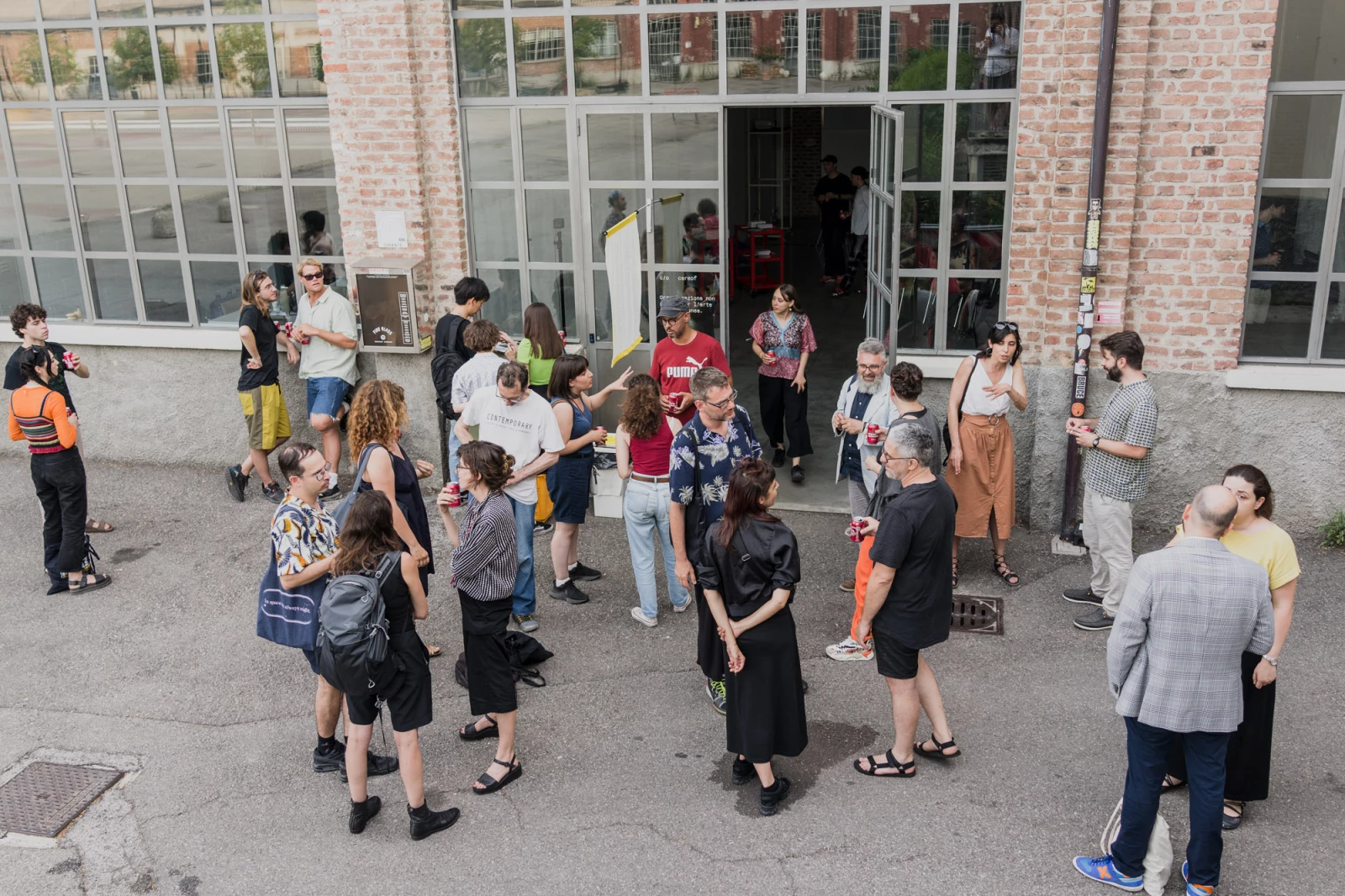Il corpo disseminato
Training and research program supported and promoted by Biennio di Net Art, Scuola di Nuove Tecnologie per l'Arte at Accademia di Belle Arti di Brera
Curated by Matteo Cremonesi, artist and lecturer at ABA Brera, and Claudia D'Alonzo, curator and lecturer at ABA Brera, in collaboration with Lucrezia Cippitelli, curator and lecturer at ABA Brera
17.06.2022
5:00 PM — Workshop presentation with
Francesco D’Abbraccio/Lorem, musician, AI artist, and independent researcher
Sara Tirelli, artist and filmmaker
and the students of the Biennio di Net Art of the Scuola di Nuove Tecnologie per l'Arte at the Accademia di Belle Arti di Brera:
Alina Akhaminova, Vanessa Biffi, Francesco Canali, Irene De Luca, Chiara Fabian, Giovanni Lo Castro, Fiorella Minnucci, Enrico Pozzobon, Delia Scaccianoce, Dario Simone Sidoti, Raff Villani, Zeyu Wang, Paola Zanella
6:00 PM — Talk
Antonio Caronia "Il corpo virtuale. Dal corpo robotizzato al corpo disseminato nelle reti”
with German A. Duarte, curator of the second edition (Krisis Publishing 2022) and researcher at Libera Università di Bolzano
Moderated by Matteo Cremonesi and Claudia D’Alonzo
The event is accessible in compliance with Covid-19 containment regulations.
Friday, June 17, 2022 - Careof hosts the final event of "Il corpo disseminato", a training and research project dedicated to the relationship between body and technologies, supported and promoted by the Biennio di Net Art of the Scuola di Nuove Tecnologie per l’Arte at ABA Brera, within the academic year 2021–22.
The event offers an opportunity to present the path developed through dialogue with Francesco D’Abbraccio/Lorem and Sara Tirelli, who over the past months have guided two groups of students in exploring languages and issues related to the virtual and its interaction with AI. This presentation aims to be a moment of sharing and discussion with a broader public context, starting from some of the reflections that emerged during the workshops.
Following this, a talk with German Duarte, curator of the new edition of the book that has guided and inspired the entire project, "IL CORPO VIRTUALE Dal corpo robotizzato al corpo disseminato nelle reti", first published in 1996 and reissued in March 2022 by Krisis Publishing.
Over tens of thousands of years, the human body has undergone no biological changes. Homo sapiens has woven a history made of symbolic processes, cultures, and representations, always inhabiting the same body that has marked the boundary between inside and outside. In the posthuman era, however, the body seems to have dematerialized, become disseminated. With the emergence of the Metaverse and NFT fashion on the scene, today "Il corpo virtuale" by Antonio Caronia reads as a prophetic text. It is also a guide to looking at the present through the lens of a future past, a glimpse into the imagination, between what we have been and what we could have become—both as a society and as bodies. The project therefore set out to bring Antonio Caronia's thought into dialogue with the present, inviting artists and theorists to share their ongoing research on the central issues of the book, such as the dematerialization and artificialization of bodies, posthuman imaginaries, and virtuality.
From April to June, the program unfolded through a series of seminars—with Loretta Borrelli, lecturer at ABA Brera and multimedia designer; Daniela Cotimbo, art historian and independent curator; Francesco Luzzana, artist; Fabio Malagnini, journalist and digital marketer; Irene Fenara, artist; Marco Mancuso, critic, curator, and independent researcher; Giang Nguyen, artist; Federica Timeto, lecturer at Ca’ Foscari Venezia—and two artistic workshops.
The first, led by Francesco D’Abbraccio/Lorem, musician, AI artist, and independent researcher, focused on the crucial role AI plays in today’s cultural ecosystem and guided a group of ABA Brera students in interacting with it through an aesthetic approach.
The second, titled "Please, confirm you are not a Robot", was conducted by Sara Tirelli, artist and filmmaker, and centered on the creation of works in Virtual Reality and on movement as a narrative device.
The final presentation of the workshops will be an open dialogue with the two authors, the students who took part, and a showcase of selected studies of virtual environments and AI-generated videos.
photo credit: Sara Tirelli, Medusa, Installation view, Borås KonstMuseum, SE, 2019; ph. Lars Årsling
Antonio Caronia
Antonio Caronia (1944–2013) was a writer, theorist, and media philosopher, among the first in Italy to develop a critical reflection on the political and social effects of new media and technology in relation to transformations of the imaginary. A graduate in mathematics, in 1978 he joined the Milanese collective Un’Ambigua Utopia, where he became editor of the magazine of the same name, focusing on the relationships between politics, science fiction, and imagination. He taught at the Accademia di Belle Arti di Brera, NABA, and the Planetary Collegium in Plymouth. Among his publications: Il cyborg. Saggio sull’uomo artificiale (ShaKe 2008), Philip K. Dick: La macchina della paranoia (with Gallo, X Book 2006), and Un'ambigua utopia: fantascienza, ribellione e radicalità negli anni 70 (with Spagnul, Mimesis 2009).
Matteo Cremonesi
Matteo Cremonesi is an artist and lecturer who works in the field of contemporary art and technology, with a particular interest in the aesthetic, social, and political impact of the Internet and new technologies on artistic research and contemporary culture in general. He currently teaches at the Accademia di Brera, Milan. In 2014 he founded Link Cabinet, the online exhibition space of Link Art Center, which he directed until its closure in 2019. He is a member of the artist group IOCOSE, with whom he has presented work in various national and international venues.
Francesco D'Abbraccio
Francesco D’Abbraccio is a musician, AI artist, and independent researcher. As Lorem, he works with neural networks and AI systems on multidisciplinary projects with a strong narrative component. His work has been exhibited at the Biennale di Architettura di Venezia, Ars Electronica, London Design Biennale, NXT Museum, Opera de Lille, Museo Triennale di Milano, Transmediale, and Design Museum. He is co-director of Krisis Publishing, an editorial platform investigating the impact of media culture on contemporary societies. He recently co-curated AI & Conflicts (KP, 2021).
Claudia D'Alonzo
Claudia D’Alonzo is an independent curator and lecturer living and working in Milan. An art historian with a PhD in Audiovisual Studies, she teaches at the Accademia di Brera, Milan. Her research interests include expanded audiovisual practices, network cultures, and the body in relation to technology. She has collaborated with museums, art centers, and festivals such as: Cimatics (Brussels); Careof (Milan); GAMeC (Bergamo); GNAM (Rome); Fondazione Forma (Milan); and Subtle Technologies Festival (Toronto). She has participated in talks, conferences, and seminars. Her essays and articles have been published in journals, catalogues, and books (Amsterdam University Press, Alfabeta2, Castelvecchi, Doppiozero, Digicult, MCD - Musiques & Cultures Digitales, Mimesis International, Treccani).
German A.Duarte
German A. Duarte is a researcher in Cinema and Media at the Libera Università di Bolzano. His research interests include media history, film history, cognitive economics, and philosophy. His work has been published in international scholarly journals and edited volumes. He is also the author and editor of several books, including La scomparsa dell’orologio universale. Peter Watkins e i media audiovisivi (2010), Fractal Narrative: About the Relationship Between Geometries and Technology and Its Impact on Narrative Spaces (2014). More recently, he has curated a series of volumes on transmediality and science fiction, including, in collaboration with J. Battin, Reading “Black Mirror”. Insights into Technology and the Post-Media Condition (2021).
Sara Tirelli
Sara Tirelli (1979) is an artist and filmmaker living in Italy. She earned an MFA in Visual Arts from the Faculty of Humanities at the University of Bologna, Department of Art, Music, and Performance in 2003, and in the same year obtained a Filmmaker Diploma from the Scuola Civica di Cinema e Nuovi Media, Politecnico di Milano. Her works have been featured in exhibitions such as Q16 Quadriennale d’Arte di Roma, Sonje Art Centre (Seoul), and Rotterdam Film Festival, among others. In 2017, she was awarded 3rd Prize in the Deutsche Bank Award and was selected the same year as a production artist-in-residence in Sweden, where she developed her first VR artwork Medusa. She has delivered several talks on her research into immersive storytelling, including Bodies, Movement and AI in VR at Goldsmiths University of London, and has participated in panels such as Future Narrative with Laurie Anderson at the Gothenburg Film Festival. In 2019, she co-founded the VR Pavilion, an independent curatorial project launched during the preview days of the 58th Venice Biennale.

Il corpo disseminato, Careof, Milano 2022, photo credit Diego Mayon

Il corpo disseminato, Careof, Milano 2022, photo credit Diego Mayon

Il corpo disseminato, Careof, Milano 2022, photo credit Diego Mayon

Il corpo disseminato, Careof, Milano 2022, photo credit Diego Mayon

Il corpo disseminato, Careof, Milano 2022, photo credit Diego Mayon

Il corpo disseminato, Careof, Milano 2022, photo credit Diego Mayon

Il corpo disseminato, Careof, Milano 2022, photo credit Diego Mayon

Il corpo disseminato, Careof, Milano 2022, photo credit Diego Mayon

Il corpo disseminato, Careof, Milano 2022, photo credit Diego Mayon
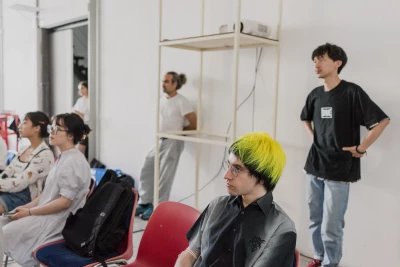
Il corpo disseminato, Careof, Milano 2022, photo credit Diego Mayon

Il corpo disseminato, Careof, Milano 2022, photo credit Diego Mayon
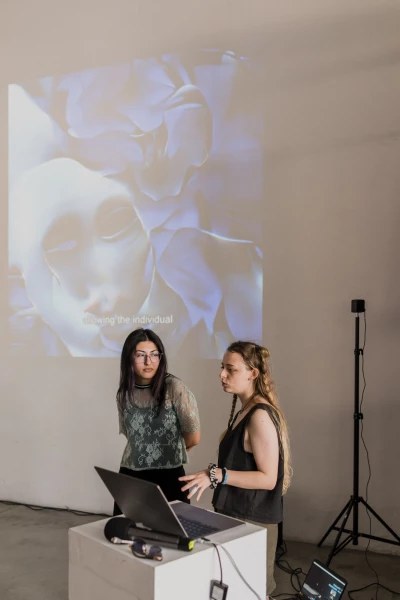
Il corpo disseminato, Careof, Milano 2022, photo credit Diego Mayon

Il corpo disseminato, Careof, Milano 2022, photo credit Diego Mayon
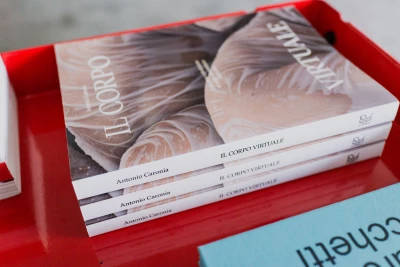
Il corpo disseminato, Careof, Milano 2022, photo credit Diego Mayon

Il corpo disseminato, Careof, Milano 2022, photo credit Diego Mayon

Il corpo disseminato, Careof, Milano 2022, photo credit Diego Mayon

Il corpo disseminato, Careof, Milano 2022, photo credit Diego Mayon
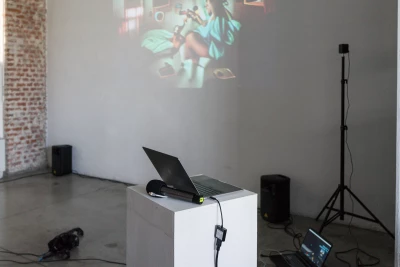
Il corpo disseminato, Careof, Milano 2022, photo credit Diego Mayon

Il corpo disseminato, Careof, Milano 2022, photo credit Diego Mayon

Il corpo disseminato, Careof, Milano 2022, photo credit Diego Mayon

Il corpo disseminato, Careof, Milano 2022, photo credit Diego Mayon

Il corpo disseminato, Careof, Milano 2022, photo credit Diego Mayon
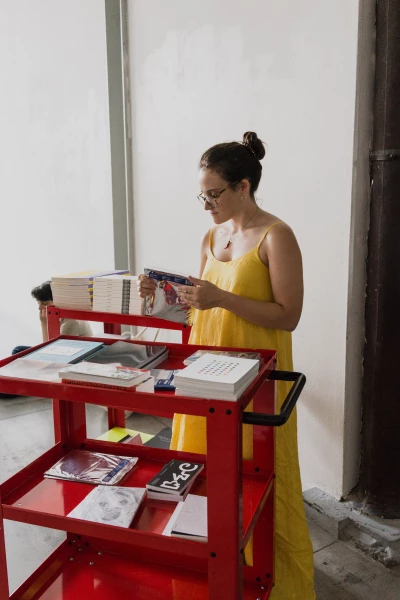
Il corpo disseminato, Careof, Milano 2022, photo credit Diego Mayon

Il corpo disseminato, Careof, Milano 2022, photo credit Diego Mayon

Il corpo disseminato, Careof, Milano 2022, photo credit Diego Mayon
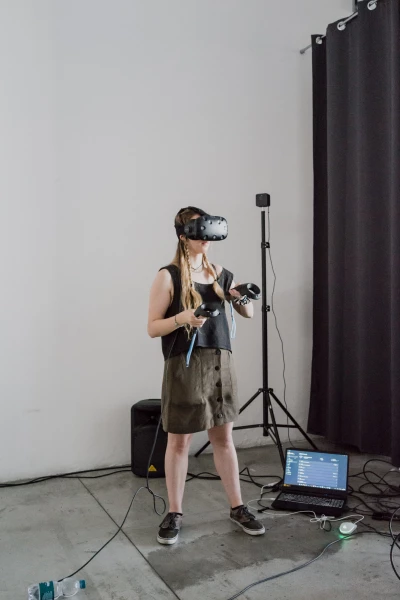
Il corpo disseminato, Careof, Milano 2022, photo credit Diego Mayon
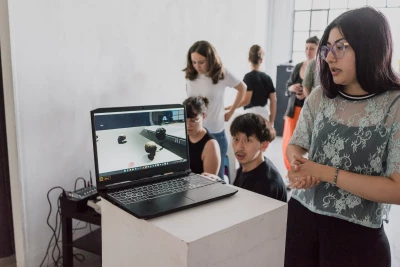
Il corpo disseminato, Careof, Milano 2022, photo credit Diego Mayon
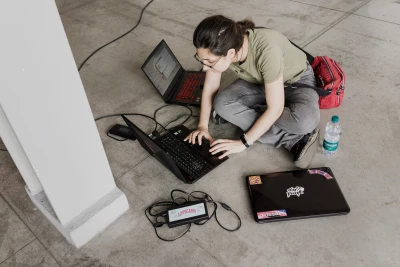
Il corpo disseminato, Careof, Milano 2022, photo credit Diego Mayon

Il corpo disseminato, Careof, Milano 2022, photo credit Diego Mayon

Il corpo disseminato, Careof, Milano 2022, photo credit Diego Mayon

Il corpo disseminato, Careof, Milano 2022, photo credit Diego Mayon
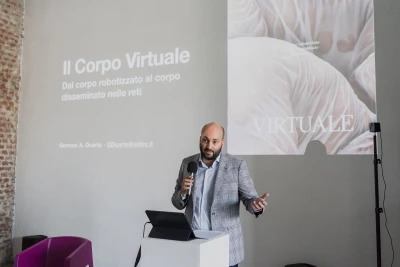
Il corpo disseminato, Careof, Milano 2022, photo credit Diego Mayon

Il corpo disseminato, Careof, Milano 2022, photo credit Diego Mayon

Il corpo disseminato, Careof, Milano 2022, photo credit Diego Mayon

Il corpo disseminato, Careof, Milano 2022, photo credit Diego Mayon

Il corpo disseminato, Careof, Milano 2022, photo credit Diego Mayon

Il corpo disseminato, Careof, Milano 2022, photo credit Diego Mayon

Il corpo disseminato, Careof, Milano 2022, photo credit Diego Mayon

Il corpo disseminato, Careof, Milano 2022, photo credit Diego Mayon
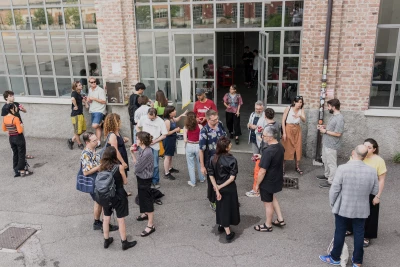
Il corpo disseminato, Careof, Milano 2022, photo credit Diego Mayon
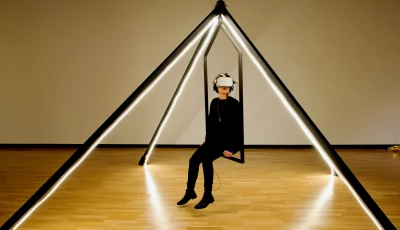
Sara Tirelli, Medusa, Installation view, Borås KonstMuseum,SE,2019; ph. Lars Årsling







